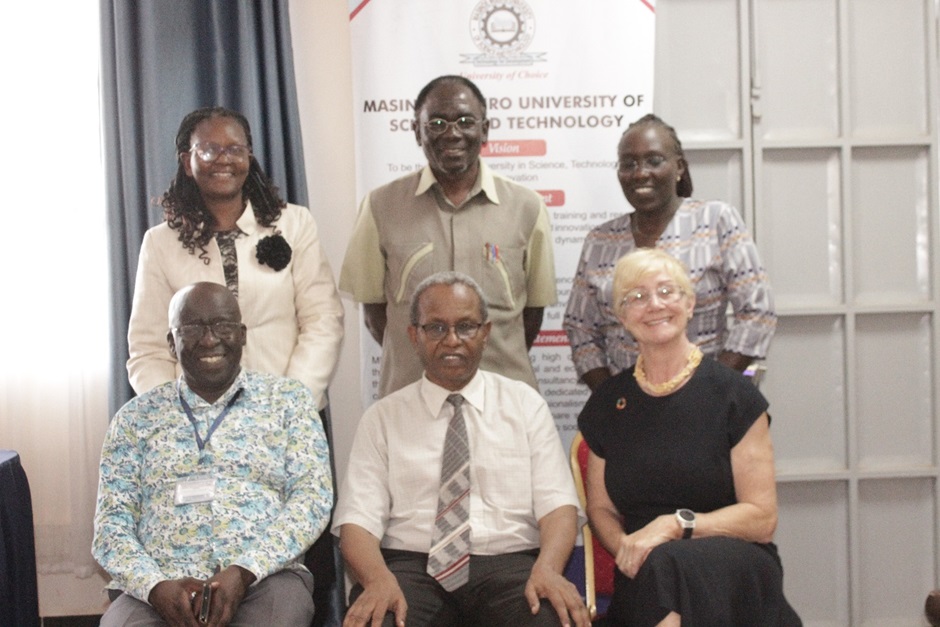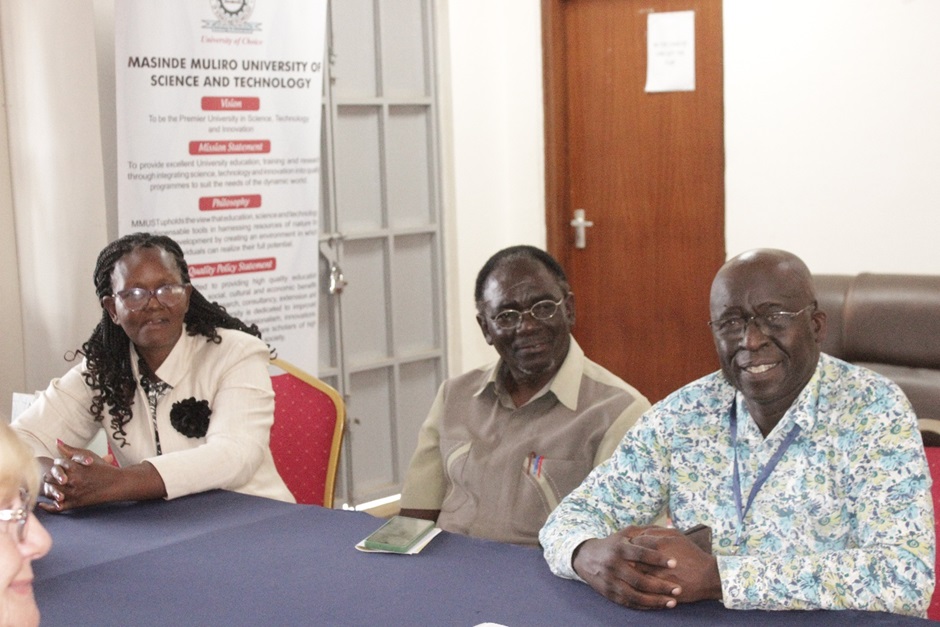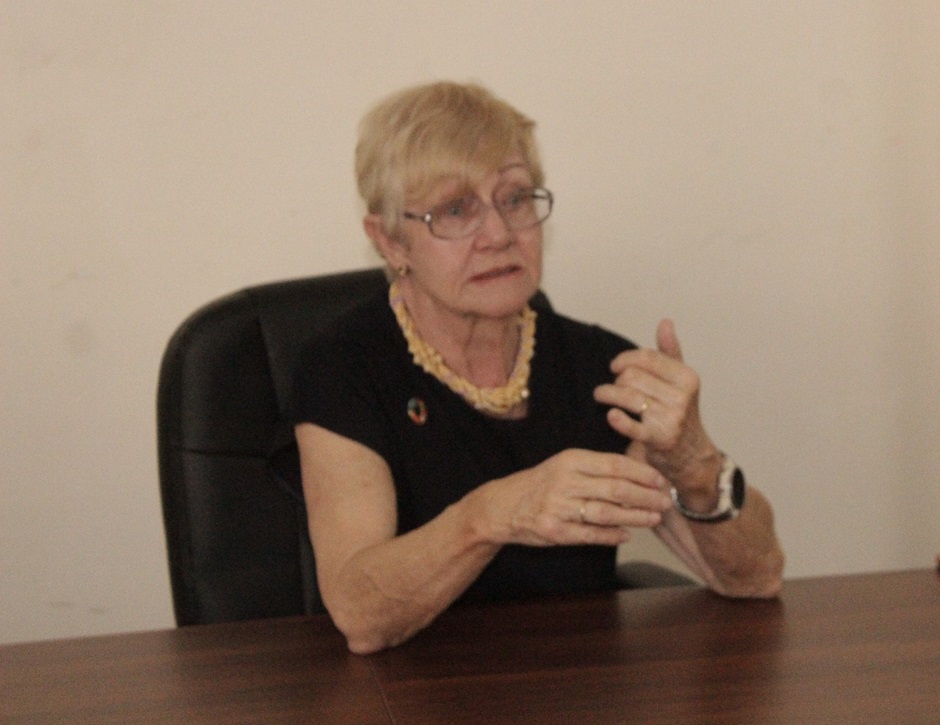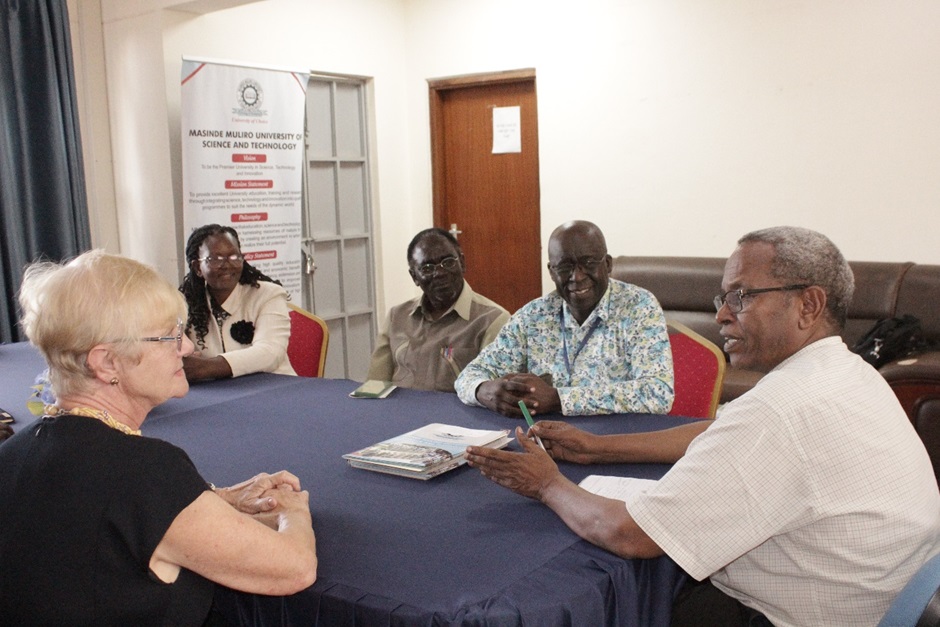A team of distinguished researchers from Masinde Muliro University of Science and Technology (MMUST) has secured a Kshs. 20.7 million grant through a World Health Organization (WHO)-funded project. This grant will support groundbreaking research aimed at enhancing the effectiveness of Community Health Promoters (CHPs). Led by the Project Principal Investigator, Dr. Joseph Choge, the study seeks to explore key factors that influence the efficiency of CHPs and inform policy decisions using an innovative approach known as ‘System Dynamics Modelling.’

The Deputy Vice Chancellor, Academic and Student Affairs, Prof. Hussein Golicha (seated center), Project Principal Investigator Dr. Joseph Choge (seated far left), and Dr. Claire Brereton (seated far right), alongside fellow researchers, during a courtesy call to the DVC’s office.
According to Dr. Choge, the Government of Kenya made a bold move in 2023 by hiring 100,000 Community Health Promoters (CHPs). Previously, as of 2020, CHPs made up 48.3% of the total healthcare workforce but operated on a voluntary basis, leading to widespread demotivation and the near-collapse of the program. Through System Dynamics Modelling, the research team will analyze these challenges and develop sustainable solutions to enhance CHP effectiveness.

From right: Dr. Joseph Choge, Dr. Fred Wanyama, and Dr. Annette Okoth during a courtesy call to the Deputy Vice Chancellor, Academic and Student Affairs.
Dr. Claire Brereton, one of the project investigators based in Australia, described Kenya’s health system as a complex network of interlinked components that cannot be fully understood by examining individual parts in isolation.
“We needed to determine the most effective ways to utilize CHPs for the greatest impact on health outcomes in Kenya. Our system maps and quantifies relationships over time, offering insights into optimal strategies. As the project progresses through workshops, data gathering, and model building, we will develop a dynamic model to guide policies for the best utilization of CHPs,” explained Dr. Brereton. She expressed optimism that their findings would make a tangible difference in strengthening Kenya’s healthcare system.

Dr. Claire Brereton, a research investigator based in Australia, participating in the ongoing workshop at MMUST.
The project team includes other key experts, namely Dr. Annette Okoth, Dr. Sabella Kiprono, and Ms. Stella Kabuga from MMUST; Dr. Willis Akwale from the Ministry of Health, from Australia; Dr. Wandabwa Christopher, a Kenyan Postdoctoral researcher at Wageningen University in the Netherlands; and Ms. Shuai Shao, a researcher from Australia.
Currently, the team is finalizing preliminary arrangements for fund disbursement. They have already secured approvals from MMUST’s Ethics Committee and the National Commission for Science, Technology, and Innovation (NACOSTI) and have the support of the Director General for Health, Dr. Patrick Amoth.
As part of their preparations, the research team is currently holding a one-week workshop at MMUST. On Monday, 10th February, 2025, the team paid a courtesy call to the Deputy Vice-Chancellor, Academic and Student Affairs- Prof. Hussein Golicha. Prof. Golicha congratulated them on this remarkable achievement and commended their dedication to advancing global health research. He emphasized the significance of the project in improving community health outcomes and reiterated the university’s commitment to supporting innovative research initiatives. He further encouraged the team to strive for excellence and assured them of the institution’s full backing throughout the project.

Deputy Vice Chancellor, Academic and Student Affairs, Prof. Hussein Golicha, engaging in a discussion with Dr. Claire Brereton and fellow researchers.
The pilot phase of the project will be implemented in selected areas within Kakamega and Uasin Gishu counties, with plans to scale the project for national and international adoption.
By Caren Nekesa




